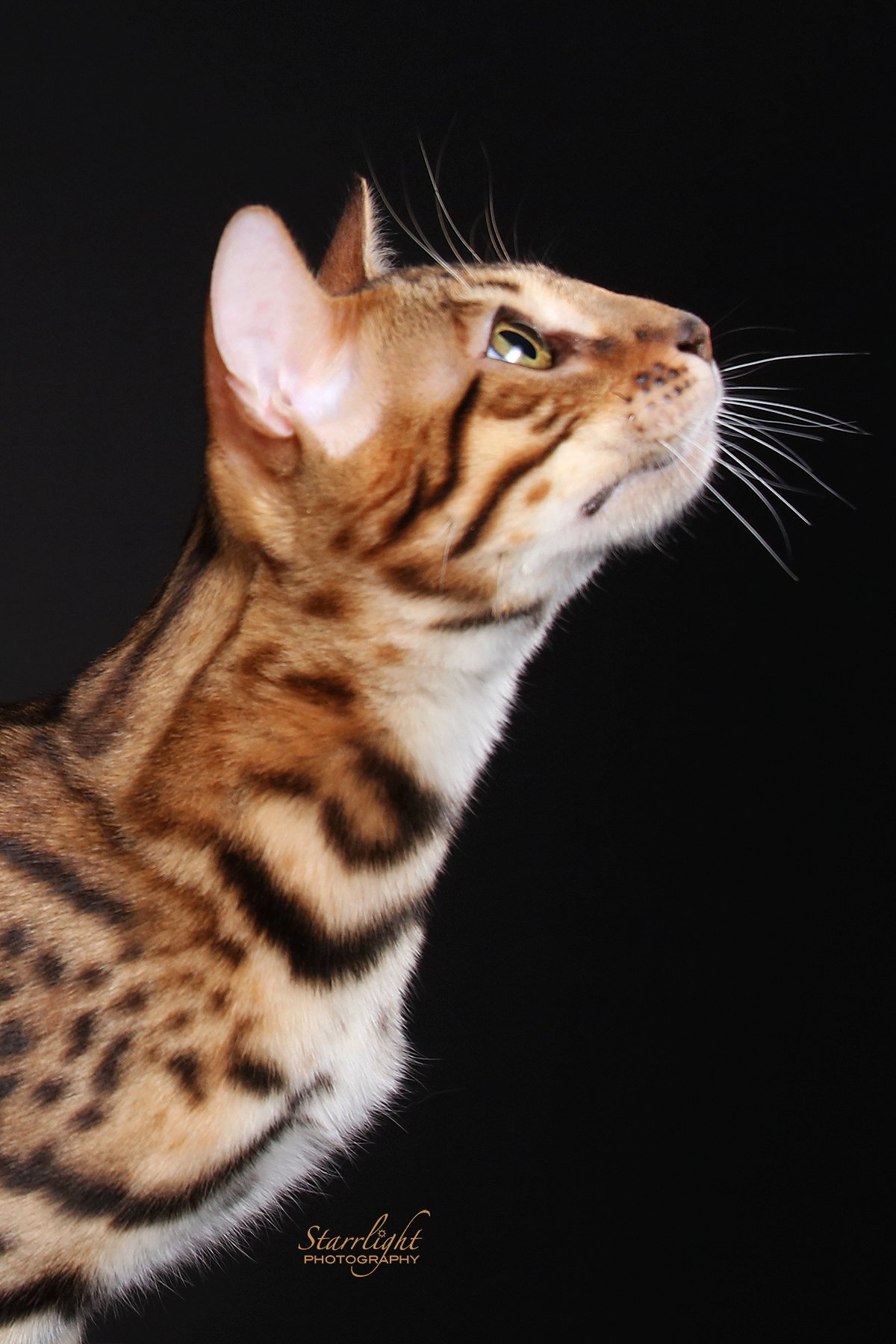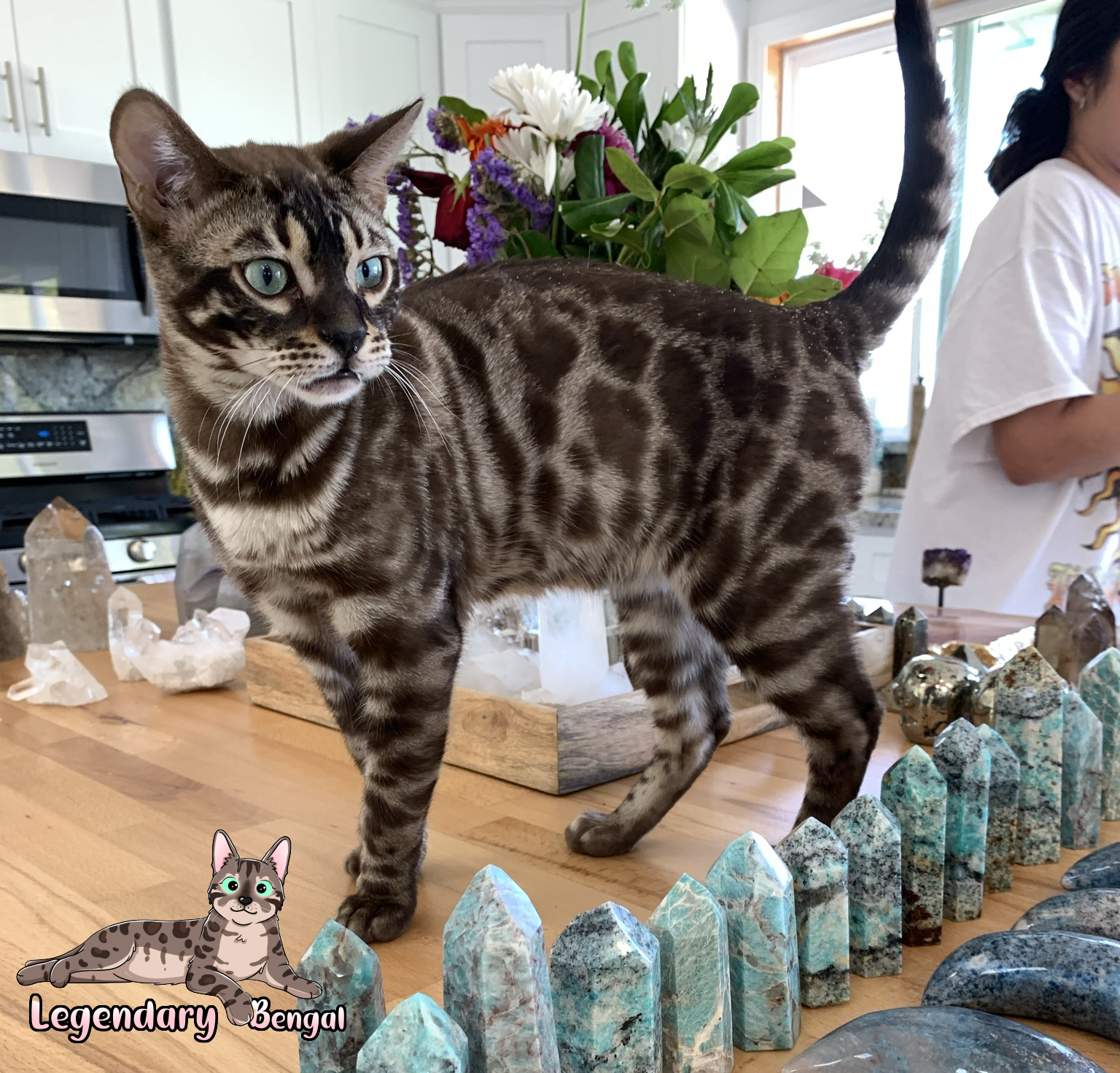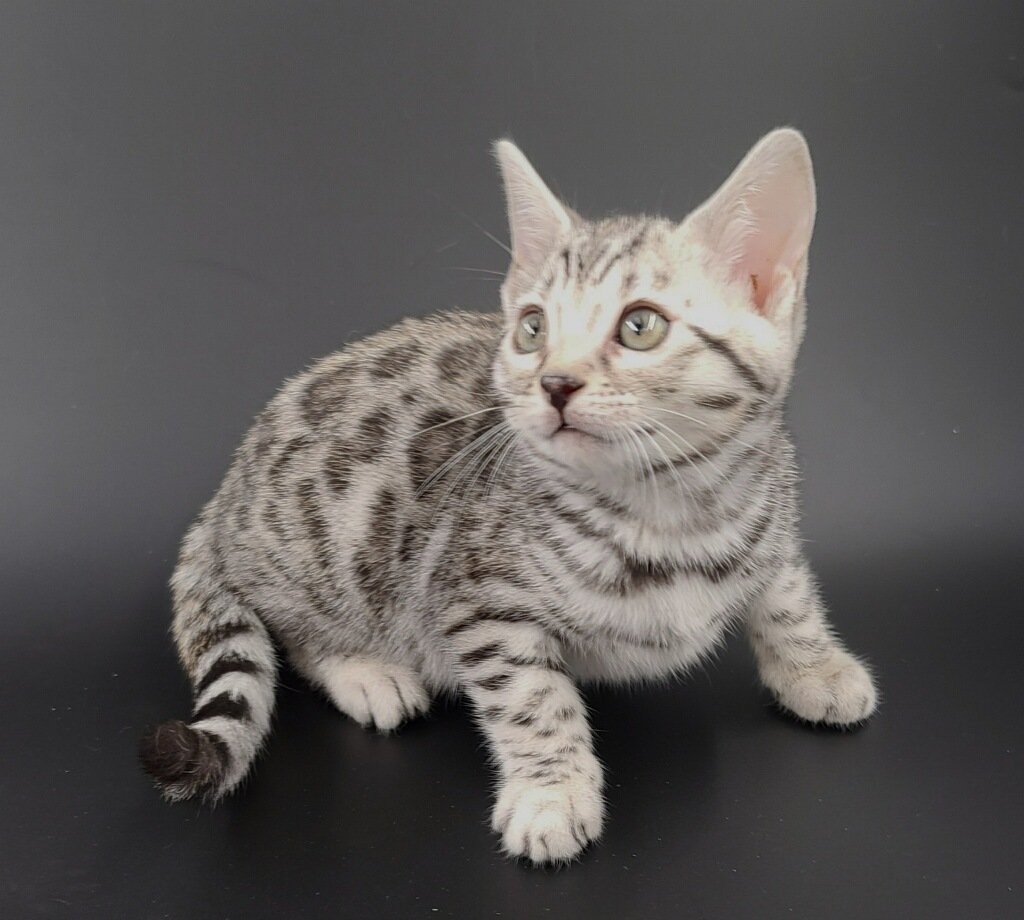Bengal Coat Colors
Bengals come in a variety of colors ranging from brown to even charcoal. Before we get into Bengal colors it is important to first talk about the two patterns, Spotted and Marbled.
Our Brown Spotted Bengal Odin Click to find out more!
Our Brown Spotted Bengal Ivar Click to find out more!
Spotted Bengal Coat
The more popular of the two coat patterns, the spotted is more sought after and desirable because it made this domesticated house cat have the features of its wild ancestors. Large defined spots covering specifically its legs along with the chest, stomach and torso is ideal.
The two types of spotted coats are the single spotted and the rosette pattern featured above/below. Within the rosette pattern there are many types of patterns including Donut shaped, Paw Print, Arrowhead, Clouded, Cluster, and Chain Rosettes.
Marbled Bengal Coat
Unlike the Spotted Coat type, the marbled coat features a blotchy swirly pattern resembling marbled cake. It reminds me of the chaotic art style made famous by Jackson Pollock.
Bengal Cat Coat Color
Brown (black) Spotted Tabby
The Brown Spotted Tabby comes in all variations of brown ranging from Golden to even Cinnamon. This coat color is the most popular, being the original color accepted by TICA in 1983. Brown Bengal Cats can have gold or green eyes.
Black Silver Spotted Tabby
Added in 2004 to the TICA championship, this steel colored coat has a gene which inhibits warm brown “tarnish” and contrasts against its white base and black markings. Variations of Silver include Charcoal Silver, Silver Snow, and Blue Silver amongst other variations. Silvers may have either green or golden eyes.
Snow Seal Lynx, Snow Seal Mink, Snow Seal Sepia
The point gene allele is at the C locus, where pure albinism is also carried, and is written as cs. Point is recessive, so two copies of cs, one from each parent, are needed for points to be expressed. Also carried on the C locus is the gene for the sepia pattern. This is the darkest of all of the pigment restricting patterns—pigment is only paled at the warmest point in the body: the abdomen. The sepia allele is represented by cb. When a cat carries the genes cs and cb, the mink pattern is formed, in which the pigment distribution is between sepia and point.
Seal Snow Lynx
The result of outcrossing to Siamese, the Seal Snow Lynx Cs/Cs has a light white cream colored coat with light to dark seal markings and brown tipped tail. It is always accentuated with blue eyes.
Seal Snow Mink
Seal Mink Cb/Cs is born with one Seal Lynx gene and one Seal Sepia gene. Their pattern will become darker as they grow.
Seal Mink Bengal coats are ivory and cream color and can have a spotted, marbled, or charcoal pattern. Seal mink Bengals will have Aqua eyes, but they can also have gold.
Seal Snow Sepia
The result of outcrossing to Burmese, the Seal Snow Sepia Cb/Cb has a coat that varies from brown to yellow brown to even a chocolate or charcoal brown. Their eyes vary from gold to green.
Charcoal
Charcoal Apb/a is a gene inherited separately from color and can be seen with each, Charcoal Brown, Charcoal Silver, Charcoal Snow, etc. Charcoals are known for their dark mask, hyena black stripe that goes down the spine, and gray to black coloration.











